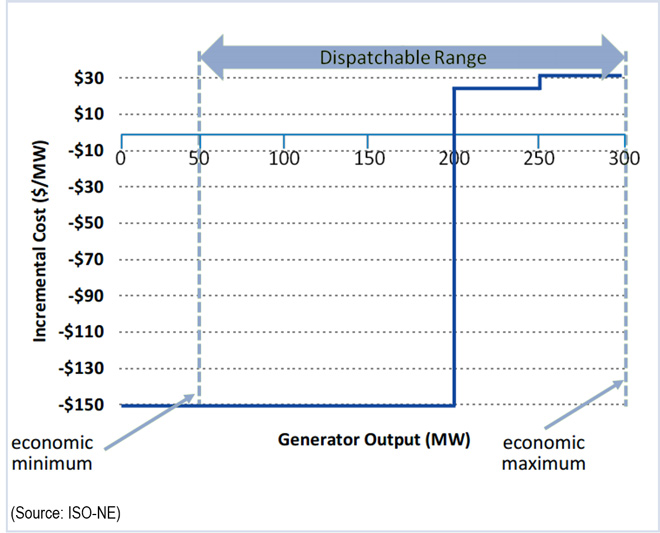By Michael Brooks
WILMINGTON, Del. — PJM members were asked last week to consider allowing generators to revise their offers hourly to reflect changes in gas prices.
PJM is the only RTO in the U.S. that does not allow generators to vary their cost- or market-based offers hourly, GT Power Group’s David Pratzon, representing Calpine, said in a proposed problem statement presented to the Markets and Reliability Committee on Thursday.
That means gas-fired generators must submit a single price for the day-ahead and real-time energy markets even though gas prices can change in midday. More flexible pricing would allow generators to reduce the risk premiums they include in their offers because they would have greater assurance that their prices reflected fuel costs, Pratzon said.
The most recent RTO to allow hourly price changes is the gas-dependent ISO-NE, which adopted the new rules in December.
In addition to benefiting gas-fired generators, Pratzon said, the flexibility also would be useful to energy storage resources and industrial customers whose opportunity costs for cutting loads can vary based on the hour of the day. “I can see a variety of different classes of resources that this would be useful to,” he said. “We don’t know all the ways this optionality could be used.”
PJM currently requires generators to select a single cost schedule for each unit’s day-ahead offer.
In February, PJM introduced an improvement to eMKT allowing gas-fired generators to make limited intraday changes in price schedules.
The change allows generators that did not receive day-ahead commitments and were not picked up in the reliability assessment and commitment (RAC) run to update their fuel prices three hours in advance of the operating hour. Units with day-ahead commitments and those selected in the RAC run can switch prices after the end of their last committed hour. Units committed in real time remain unable to change their cost schedules until released.
Previously, there was no way for generators to change their prices once PJM locked them at 6 p.m. the day before.
Stakeholders at the MRC meeting expressed support for the additional flexibility sought by Calpine.
“We think this is a critically needed improvement to the energy market,” Dominion’s Lisa Moerner said. “It has been working incredibly well” in ISO-NE, she added.
The proposal “will do a lot to harmonize gas-electric coordination that we’ve been trying to achieve,” said Marji Phillips of Direct Energy.
Dan Griffiths, executive director of the Consumer Advocates of PJM States, said his members “don’t have a principled objection” to the potential change but are concerned about generators claiming unreasonably high gas prices.
Independent Market Monitor Joe Bowring echoed Griffiths’ concern. “Let’s not forget what the reason was for the rule requiring only one offer per day by generating units,” Bowring said. “It was to prevent the exercise of market power.
“It’s important this doesn’t become a tool for the exercise of market power, which it easily could be used to do. There are good ways to implement this and bad ways to implement it.” Nevertheless, Bowring said, “it’s clearly a worthy discussion” to have, calling it “potentially efficiency enhancing.”
The MRC will vote on the problem statement next month. Pratzon suggested a new senior task force consider the issue.
Pratzon said it took ISO-NE about 18 months to implement its changes from the beginning of discussions. By learning from the RTO’s experience, he said, PJM might be able to make the change before next winter.
However, even if stakeholders agree quickly on new rules, Pratzon acknowledged, required software changes could delay implementation.




